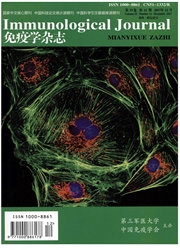

 中文摘要:
中文摘要:
脓毒症是指严重的全身感染所引起的宿主免疫反应所导致的危及生命的器官功能障碍,自提出概念以来,脓毒症以及严重的全身感染一直是造成ICU病人死亡的重要原因。研究表明,巨噬细胞作为促炎细胞因子IL-6、IL-1β及TNF-α的重要来源在脓毒症的发生中起着重要的作用。巨噬细胞通过经典和非经典途径-caspase-11等炎性Caspase介导的非经典炎性体途径是巨噬细胞对多种危险因素,尤其是革兰阴性菌的识别与处理的重要途径,同时在促炎细胞因子的释放,免疫细胞焦亡以及病原体清除等方面发挥着重要作用。本文重点回顾了近年来非经典炎性体通路在脓毒症中的作用的研究进展。
 英文摘要:
英文摘要:
Sepsis, referring to organ dysfunction resulted from improper immune response caused by severe systemic infection, become a major cause of death in ICU. Recently, researches focusing on the immune mechanism of sepsis revealed the vital role of macrophage, as a major source of pro-inflammation cytokine such as IL-1β, IL-6 and TNF-α in sepsis. However, the easpase-ll-dependent noncanonical inflammasome pathway has been proved to be a key method that helps macrophage sense various pathogen and play key roles in promoting pro-inflammation cytokines release, pyroptosis and bacterial clearance. This review proposes to light the new sight of the role that caspase-11-dependent noncanonical inflammasome plays in sepsis.
 同期刊论文项目
同期刊论文项目
 同项目期刊论文
同项目期刊论文
 期刊信息
期刊信息
